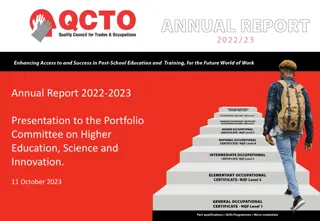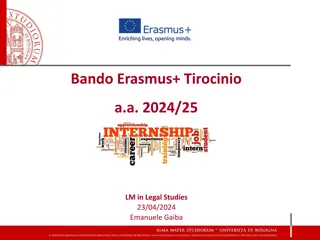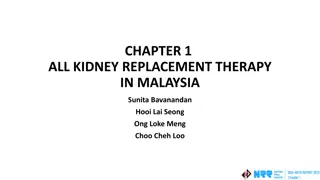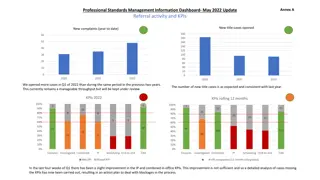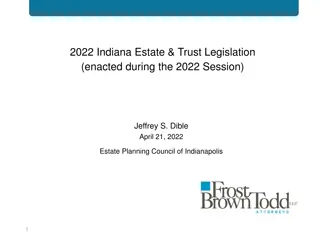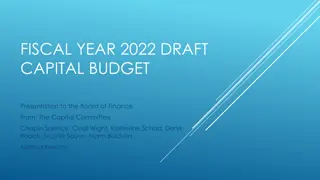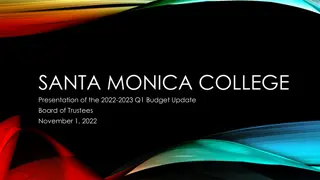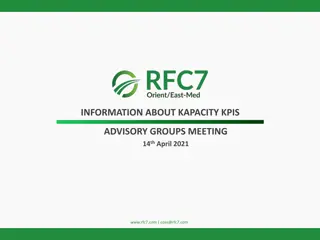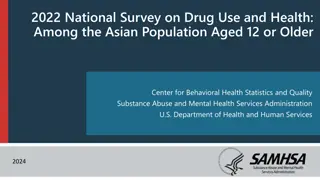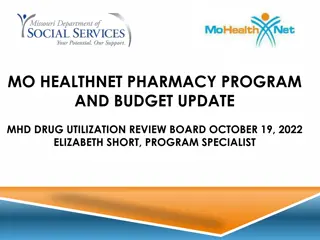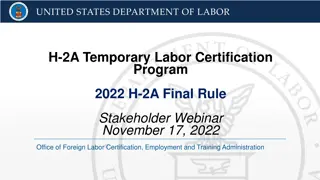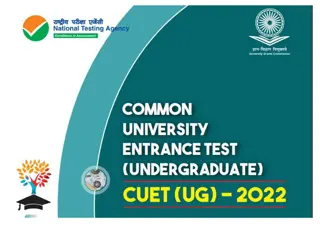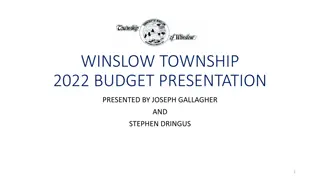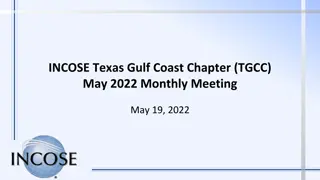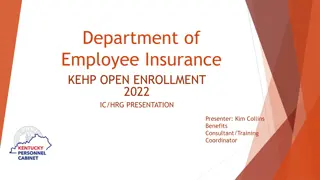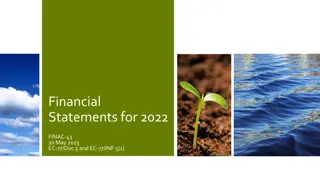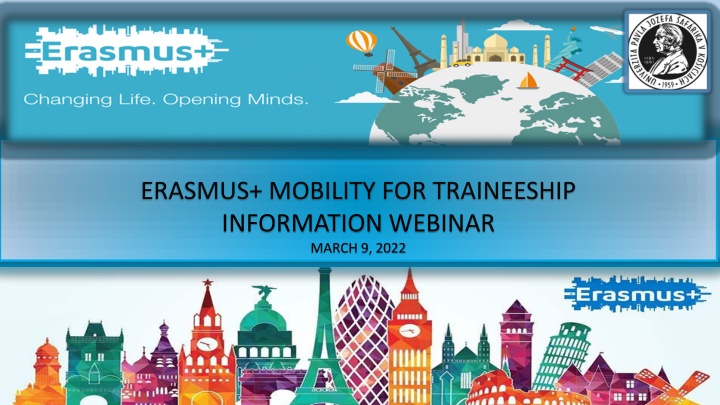
Erasmus+ Traineeship Information and Opportunities
Explore the Erasmus+ Programme that offers university students and recent graduates the chance to study or intern abroad, enhancing their skills, knowledge, and employability. Discover the main objectives of traineeships and who can participate in these valuable opportunities.
Uploaded on | 2 Views
Download Presentation

Please find below an Image/Link to download the presentation.
The content on the website is provided AS IS for your information and personal use only. It may not be sold, licensed, or shared on other websites without obtaining consent from the author. If you encounter any issues during the download, it is possible that the publisher has removed the file from their server.
You are allowed to download the files provided on this website for personal or commercial use, subject to the condition that they are used lawfully. All files are the property of their respective owners.
The content on the website is provided AS IS for your information and personal use only. It may not be sold, licensed, or shared on other websites without obtaining consent from the author.
E N D
Presentation Transcript
ERASMUS+ MOBILITY FOR TRAINEESHIP INFORMATION WEBINAR MARCH 9, 2022
WHAT IS ERASMUS+ PROGRAM WHAT IS ERASMUS+ PROGRAM the Erasmus+ Programme is a European funding programme established in 1987 offering university students a possibility of studying or doing an internship abroad in another country for a period of time higher education students from after completing a 1st year of studies can benefit of the Erasmus+ studies and Erasmus+ placement programmes. There is no age limitation
WHAT IS ERASMUS+ TRAINEESHIP WHAT IS ERASMUS+ TRAINEESHIP spending a period of time in a company or organization in another country which is member state of the Erasmus+ program (EU) in order to acquire the specific skills required in the labor market, gain work experience and gain a better understanding of the economic and social culture of the country concerned
MAIN OBJECTIVES OF THE MAIN OBJECTIVES OF THE TRAINEESHIPS TRAINEESHIPS to stimulate and intensively support the education and training of university students and fresh graduates through practical training abroad to apply the theoretical knowledge and practical skills acquired in the student's study field in a specific work environment to acquire new knowledge and skills and strengthen key competencies such as effective communication and communication in a foreign language, intercultural competence, teamwork, organizational skills, problem solving, information literacy, creativity, etc. to expand the qualification profile of students and fresh graduates, contribute to their professional and personal growth and increase their attractiveness in terms of employability
WHO CAN PARTICIPATE WHO CAN PARTICIPATE STUDENTS all duly registered students for the full-time and part-time study programs at all levels of study bachelor, magister, doctoral from the 1st year of the 1st level of study RECENT GRADUATES can realize their mobilities within 12 months after their graduating student has to be selected durig the last year of study lenght of the mobility depends from lenghts of the previous mobilities
TYPES OF TYPES OF TRAINEESHIPS TRAINEESHIPS LONG TERM MOBILITY traineeship for students traineeship for recent graduates traineeship in digital skills SHORT TERM MOBILITY Short term mobility for PhD. students
TRAINEESHIP FOR STUDENTS TRAINEESHIP FOR STUDENTS realized during the study, study can not be interrupted in relevant field of study traineeship is embedded in the curriculum or could be voluntary minimum duration 2 months maximum duration 12 months for study level or 24 months for one study cycle program (medicine or dentistry)
TRAINEESHIP FOR RECENT GRADUATES TRAINEESHIP FOR RECENT GRADUATES recent graduates can realize traineeship within 12 months after their graduation selection procedure has to proceed during the last year of study maximum duration depends from previous lenghts of the mobilitities for study or for traineeship maximum duration 12 months for study level or 24 months for one study cycle program (medicine)
TRAINEESHIP IN DIGITAL SKILLS TRAINEESHIP IN DIGITAL SKILLS available for all study programs for students or recent graduates possibble activities are: app maintenance and management of IT systems and networks; cybersecurity; data analytics, artificial intelligence applications; programming languages; search engine optimisation (SEO) and digital marketing for more information click here traineeships should be planning as full time job of the receiving country maximum duration 12 months for study level or 24 months for one study cycle program (medicine, dentistry) total, including traineeship for recet graduates development and software; installation,
SHORT TERM TRAINEESHIP FOR PHD. SHORT TERM TRAINEESHIP FOR PHD. STUDENTS STUDENTS lasts 5 to 30 days only for PhD. students the same procedure as for the long time mobilities activities focused on completing training work skills, non-academic experience, research skills, research the student must choose this type of traineeship when register for the selection procedure
GENERAL RULES GENERAL RULES the student is responsible for the communication with the receiving organization the preparation of the program for the traineeship has to be ensured by the student in cooperation with faculty/departmental/institute/coordinator before leaving for an Erasmus+ mobility for traineeship the student should find out what are his/her responsibilities at the home faculty/department/institute that are connected to his/her regular studies at the home institution students cannot participate in an Erasmus+ mobility for traineeship, if their study at the UPJ is interrupted students have to finish their Erasmus+ mobility for traineeship before the date of the state examinations, if they participate in an Erasmus+ mobility during their last year in the study cycle the receiving organization and
if student wants to participate in an Erasmus+ mobility for traineeship during their last year in the study cycle, it is necessary to find out at the faculty/department/institute whether it is possible to participate taking into consideration the responsibilities before finishing their studies and attending state examinations extension of the mobility is possible, it is necessary to send the consent of our coordinator and the host institution by e-mail one month before the originally scheduled end date, then an addendum to the financial agreement will be prepared and the grant support for the extended mobility period will arise, total duration 12/24 months per degree must be adhered to the interruption of a mobility is not allowed. Such interruption can be authorized only by the Erasmus + National Agency in exceptional cases if the student decides to withdraw his/her application for a mobility, she/he has to inform the IRO via an e-mail stating the reason of his/her withdrawal
LEARNING AGREEMENT FOR TRAINEESHIP LEARNING AGREEMENT FOR TRAINEESHIP LA is an education contract signed by the student, Erasmus + coordinator at the home university and the host institution before leaving the home university, the participating parties signs the first part of the Learning Agreement for Traineeship - Before the mobility - a document that describes the programme of mobility followed in the host institution at the end of the stay the receiving institution should prepare for the student third part of the Learning Agreement After the mobility - a document which confirms the completed programme and the results these documents are legally binding for all parties involved (your home university and host institution)
CREDITS CREDITS if student realize the traineeship, which is a part of a study plan or voluntary he/she can obtain credits, their number is written in LA after mobility it is necessary to apply for recognition of credits according to the procedure at each faculty (ask your faculty/departmental/institute coordinator) if the student does not get credits at the faculty level, he/she will get 3 credits for Erasmus + traineeship at the university level, about which it is necessary to inform us after the end of the mobility graduate mobility participants do not receive credits as they no longer have student status
THE RECEIVING INSTITUTION CAN BE: THE RECEIVING INSTITUTION CAN BE: any public or private organization active in the labour market or in the fields of education, training and youth: a public or private, a small, medium or large enterprise (including social enterprises); a public body at local, regional or national level; a social partner or other representative of working life, including chambers of commerce, craft/professional associations and trade unions; a research institute and foundation; a school/institute/educational centre (at any level, from pre-school to upper secondary education, and including vocational education and adult education); a non-profit organization or association, a body providing career guidance, professional counselling and information services; university (a Programme Country HEI awarded with an ECHE)
THE RECEIVING INSTITUTION CAN NOT BE: THE RECEIVING INSTITUTION CAN NOT BE: EU institutions and other EU bodies including specialized agencies (their exhaustive list is available on the website organizations managing EU programs such as Erasmus+ National Agencies (in order to avoid a possible conflict of interests and/or double funding)
LENGTH OF THE LENGTH OF THE TRAINEESHIPS TRAINEESHIPS MINIMUM: 2 months (6O days) for long-term mobility 5 days for short-term mobility for PhD. students each month is considered to be 30-day long in case of an incomplete month, the grant is calculated according to the number of days (1 day = 1/30 monthly rate) tool: grant calculator
MAXIMUM: total time abroad may not exceed 12 months within one cycle of study either as a student mobility for study, as a trainee or recent graduate in case of one cycle study fields, e.g. medicine or dentistry the total time is 24 months
APPLICATION PROCEDURE APPLICATION PROCEDURE will be published at faculty/department/institute websites for application please contact the departmetal coordinators directly or submit online application form available at the Faculty of Arts and Faculty of Science website
SELECTION SELECTION PROCEDURE FOR THE ACADEMIC PROCEDURE FOR THE ACADEMIC YEAR 2021/2022: YEAR 2021/2022: Last call for applications for the short-term mobilities for PhD. students: Application deadline: 9. 5. 2022. Possible beginning: 23. 5. 2022 Realization until: 31. 8. 2022
SELECTION PROCEDURE FOR THE NEXT SELECTION PROCEDURE FOR THE NEXT ACADEMIC YEAR 2022/2023 ACADEMIC YEAR 2022/2023 registration for the selection procedure was opened at the faculties during February March 2022 the deadlines for applying for the additional selection procedure will be published on the websites of individual faculties during September 2022 students can participate at his/her mobility in the period from 1. 6. 2022 to 31. 5. 2023 recent graduates within 12 months after their graduation
FINANCING FINANCING since the Erasmus+ financial support is only a contribution to cover the costs associated with your mobility, please verify other options of funding (salary from the host organization, savings, etc.) Financing scheme: 80% before the mobility after signing financial agreement 20% after the mobility when all condition are fullfiled in addition to the Erasmus+ grant you can also receive salary from the receiving organization. The payment may be financial or e.g. in a form of accommodation, public transport tickets, meals, etc.) the student is not allowed to use the Erasmus+ grant to cover similar mobility costs if she/he has already been funded from other European Union sources the lump sum for a month is intended to cover general costs connected to a mobility as well as travel costs
B BASIC RATES OF INDIVIDUAL SUPPORT FOR A LONG ASIC RATES OF INDIVIDUAL SUPPORT FOR A LONG- - TERM MOBILITY AND TOP TERM MOBILITY AND TOP- -UPS UPS: : Target country Grant/month - study mobility Denmark, Finland, Ireland, Iceland, Lichtenstein, Luxemburg, Norway, Sweden 670 Belgium, Cyprus, France, Greece, Netherlands, Malta, Germany, Portugal, Austria, Spain, Italy Bulgaria, Croatia, Czech Republic, Estonia, Lithuania, Latvia, Hungary, Slovenia, Poland, Romania, the Republic of North Macedonia, Serbia, Turkey 620 The mobility participants with fewer opportunities are entitled to a top-up amount of 250 / month above the basic grant. Students can obtain support for green travel. In this case, they will receive a single contribution of EUR 50 as a top-up to the individual support
B BASIC RATES OF INDIVIDUAL SUPPORT FOR A SHORT ASIC RATES OF INDIVIDUAL SUPPORT FOR A SHORT- - TERM MOBILITY AND TOP UPS TERM MOBILITY AND TOP UPS: : Participants of short-term mobilities (5-30 days) are entitled to individual support for physical mobilities, including travel days, regardless of the target country: Day 1-14 Day 15-30 Target country Grant/day Grant/day All programme countries 70 50 Mobility participants with fewer opportunities are entitled to a top-up amount of 100 above the basic rate for a physical mobility lasting 5-14 days and of 150 for a physical mobility lasting 15-30 days. Support for travel costs is granted to participants with fewer opportunities. The travel grant is covered by a special range of fixed amounts according to the distance bands valid for the whole program: Distance band From 10 to 99 km: From 100 to 499 km From 500 to 1 999 km: From 2 000 to 2 999 km: From 3 000 to 3 999 km: From 4 000 to 7 999 km: 8 000 km or more: Standard travel 23 EUR/participant 180 EUR/participant 275 EUR/participant 360 EUR/participant 530 EUR/participant 820 EUR/participant 1 500 EUR/participant Green travel 210 EUR/participant 320 EUR /participant 410 EUR /participant 610 EUR /participant
TYPES OF SUPPORT FOR THE STUDENTS WITH FEWER OPPORTUNITIES Group Disability Description As a person with a severe health disability (hereinafter referred as a person with a SHD) is considered a person with a functional impairment rate of at least 50% . Type of support Top-up and real costs (if top-up is not enough) Proof possibilities ZP card (Disability card) Health problems As a person with a health problem is considered a person with a chronic illness or psychiatric illness. Top-up Medical report and/or financial contribution decision from PSVaR (labor office) and/or a student with special needs status - Counseling Center report Economic barriers low standard of living, low income (eg. family in social need) dependence on the social security system (eg. orphan's pensioner, unemployment benefits) Top-up Social scholarship and/or - confirmation of material need from the PSVaR (labor office) Social barriers Social adaptation difficulties: a single parent with a child (ie. a single woman or a single man who is permanently taking care for a child under the age of 15), discrimination barriers Top-up Depending on the situation: Statutory declaration Others Different types of barriers (eg. ethnic origin, migrants, etc.) - depending on the university s decision Top-up Depending on the situation: Statutory declaration
ONLINE LINGUISTIC SUPPORT ONLINE LINGUISTIC SUPPORT the student will receive an invitation for the language test before the mobility, from the mobility language from the OLS (Online Linguistic Support) system to the e-mail address, after signing the financial agreement the system will offer him an online language course after passing the test after mobility, it is possible to take an output language test to compare language skills evaluation is informative for the student it is available for all long-term mobilities and short-term mobilities of PhD. students longer than 14 days
IMPORTANT LINKS IMPORTANT LINKS INFORMATION ABOUT TRAINEESHIPS AND NEEDED DOCUMENTS HERE OFFERED OPORTUNITIES FOR THE TRAINEESHIPS: Erasmusintern.org searching traineeships School Education Gateway - searching universities offered traineeships STUDENT ORGANISATIONS: https://esn.org/ - Erasmus Student Network https://www.esaa-eu.org/ - Erasmus+ Student and Alumni Aliance Content is not guaranteed by the university, National Agency Erasmus+ or European Commission.
CONTACT DATA CONTACT DATA university level doc. Ing. Silvia Ru insk , PhD. Vice-Rector for International Relations International Relations Office (IRO): Common IRO address: zahrodd@upjs.sk, FB: @upjserasmus Mgr. M ria Vasi ov , PhD. Institutional Coordinator Erasmus+ Phone: +421 055 234 1159, E-mail: maria.vasilova@upjs.sk PhDr. Zuzana Szattlerov Contact person for outgoing students for the traineeships Phone: +421 055 234 1129, E-mail: zuzana.szattlerova@upjs.sk faculty / departmental / institute coordinators
THANK YOU FOR YOUR ATTENTION THANK YOU FOR YOUR ATTENTION

